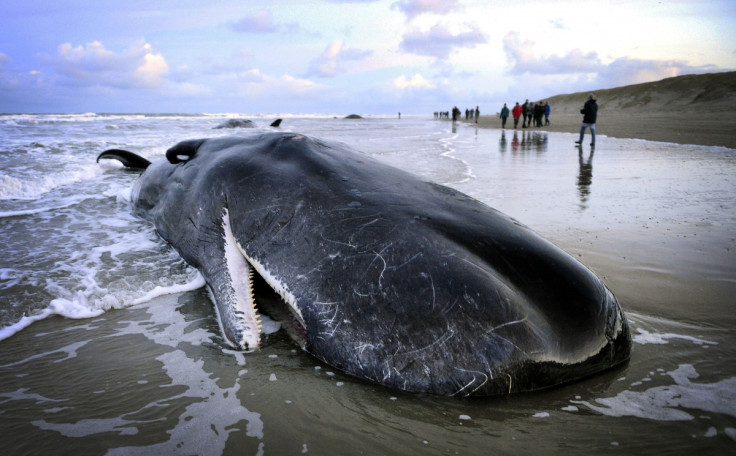Couple find whale vomit worth £50,000 on Middleton Sands beach

A couple strolling along Middleton Sands beach near Morecambe Bay in Lancashire stumbled upon a stenchy rubbery piece that turned out to be whale vomit, which could be worth £50,000 ($71,246). Gary and Angela Williams, from Overton in Lancashire, are celebrating after having discovered the highly-prized ambergris, or whale vomit, which is used in the manufacture of perfumes.
They have kept the ambergris in safe storage and are negotiating with potential buyers. They are also consulting two experts — one in France and the other in New Zealand — the Mirror reported.
"It was a bit of a shock. It was down a section of the beach where no one really walks. It smells too bad though. It's a very distinctive smell, like a cross between squid and farmyard manure," Gary Williams was quoted as saying.
Williams added that they were strolling along the beach when they smelled rotting fish and followed the stench to locate its origin, where they found the rubbery lump. They realised it looked like a piece they had read about in a newspaper. They wrapped the lump in a scarf and brought it home.
"It feels like a rock hard rubber ball. Its texture is like wax, like a candle. When you touch it you get wax sticking to your fingers," Williams said, adding that if the lump is really what they are speculating it is and worth "a lot of money", it could help him fulfil his dream of buying a static caravan.
The 48-year-old engineer reportedly weighed the lump, slightly smaller in size than a rugby ball, and found it to be about 1.57kg. A similar, but bigger lump, weighing 2.7kg, was found near Morecambe, which was valued in 2003 at £120,000.
Another 1.1 kg piece was found on a beach in Anglesey, Wales, which was sold for £11,000 at an auction in Macclesfield, Cheshire in September 2015.
Ambergris or whale vomit is hardened intestinal slurry from a sperm whale. Rarely found, ambergris is said to protect the whale from hard and sharp objects it eats. It takes many years to form and is a valued product for perfume manufacturers. It is also called "floating gold" as it can float in the ocean for years before washing ashore. Long exposure to the sun and salt water transforms the intestinal slurry into a smooth, grey, waxy rock-like lump.
© Copyright IBTimes 2025. All rights reserved.





















